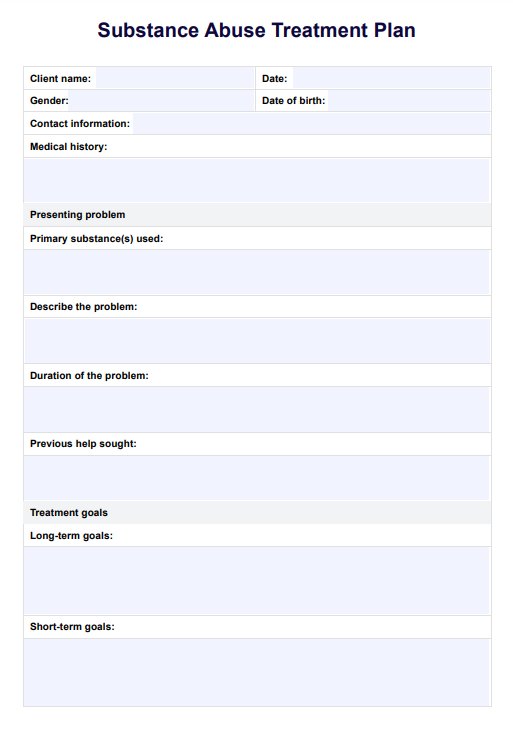Group therapy offers a supportive environment where patients can share experiences and learn healthy coping mechanisms. It fosters a strong support system, allowing individuals to connect with others on similar journeys, which can be crucial for effective treatment of addiction.

Treatment Plan For Substance Abuse
Download this template for a structured Treatment Plan for Substance Abuse. Streamline care coordination and enhance recovery outcomes with clear goals.
Treatment Plan For Substance Abuse Template
Commonly asked questions
A comprehensive assessment evaluates the patient's history, mental health conditions, and substance use patterns. This process helps the treatment team develop a personalized treatment plan, ensuring all treatment components align with the patient's goals and support their journey toward recovery.
Monitoring patient progress involves regular evaluations and clinical observations to assess their response to treatment. It is essential to identify any high-risk situations, adjust treatment goals as needed, and ensure the patient receives appropriate support throughout their recovery journey.
EHR and practice management software
Get started for free
*No credit card required
Free
$0/usd
Unlimited clients
Telehealth
1GB of storage
Client portal text
Automated billing and online payments











